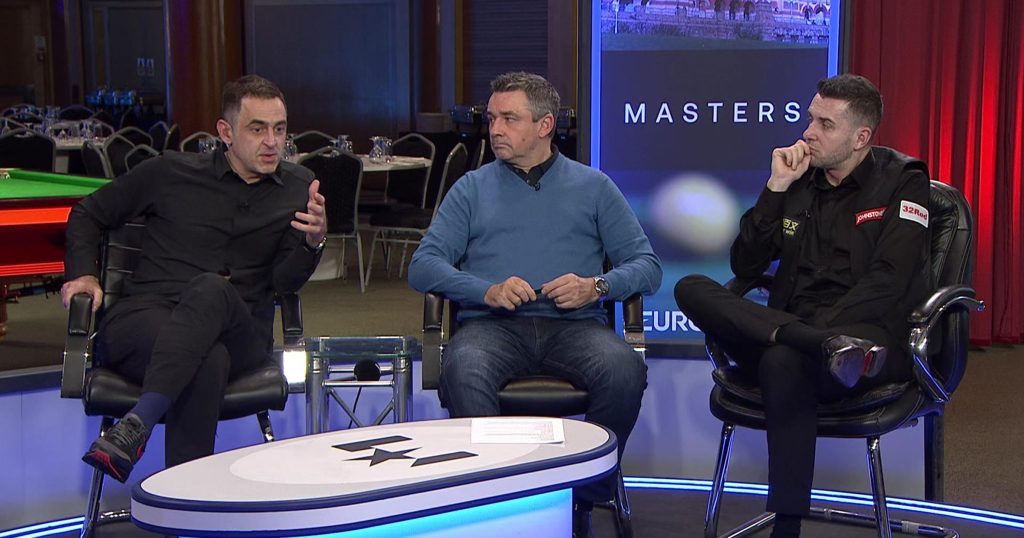The recent Masters snooker tournament witnessed a compelling clash between Ronnie O’Sullivan, the reigning world champion, and Ali Carter, culminating in a decisive 6-1 victory for O’Sullivan. Beyond the immediate thrill of the match, however, a more profound conversation emerged, spurred by the post-match analysis featuring O’Sullivan, fellow snooker legend Alan McManus, and former world champion Mark Selby. The trio delved into the often-overlooked subject of mental health within the demanding world of professional snooker, offering valuable insights into the pressures, anxieties, and challenges players face. This discussion, broadcast on Eurosport and discovery+, provided a crucial platform for addressing the psychological battles waged behind the scenes of this seemingly serene sport. The conversation resonated deeply, highlighting the importance of acknowledging and supporting the mental well-being of athletes across all disciplines.
The intensity of professional snooker, with its solitary nature and unforgiving scoring system, places immense pressure on players. Every shot, every frame, every tournament contributes to a cumulative strain that can take a significant toll on mental health. O’Sullivan, widely regarded as one of the greatest snooker players of all time, shared his own experiences navigating the psychological complexities of the sport. He emphasized the constant scrutiny players face, the weight of expectation, and the isolating nature of individual competition. This pressure cooker environment, where milliseconds can determine success or failure, often leads to anxiety, self-doubt, and a relentless pursuit of perfection. The vulnerability demonstrated by O’Sullivan, a player known for his mental fortitude, underscored the universal nature of these struggles, even among the elite.
McManus, a seasoned professional with a deep understanding of the snooker landscape, echoed O’Sullivan’s sentiments. He highlighted the demanding travel schedules, the long hours of practice, and the relentless pressure to perform at the highest level. McManus pointed out that the mental resilience required to compete at the top tier of snooker is often underestimated. Players must cope with the inevitable setbacks, the fluctuating form, and the constant pressure to maintain their ranking and livelihood. He emphasized the need for a supportive environment and the importance of destigmatizing conversations about mental health within the sport. McManus’s insights offered a crucial perspective from a player who has witnessed the evolution of the sport and its impact on players’ well-being.
Selby, a former world champion known for his tactical prowess and unwavering focus, provided a particularly poignant contribution to the discussion. He openly shared his personal struggles with depression, shedding light on the profound impact mental health challenges can have on a player’s career and overall well-being. Selby’s candidness served as a powerful reminder that even the most successful athletes are not immune to the vulnerabilities of the human condition. His willingness to speak openly about his experiences helped to normalize the conversation around mental health in snooker and offered a beacon of hope for others struggling in silence. Selby’s contribution was a testament to the evolving understanding and acceptance of mental health issues within the sporting world.
The discussion between these three snooker icons served as a crucial catalyst for raising awareness about the importance of mental health support within the sport. They emphasized the need for greater understanding, resources, and open communication to address the specific challenges faced by snooker players. Their collective experiences underscored the need for a more comprehensive approach to player well-being, encompassing not only physical training and coaching but also psychological support and mental health resources. The willingness of these high-profile figures to speak openly about their own vulnerabilities helped to break down the stigma surrounding mental health and encourage a more supportive and empathetic culture within the snooker community.
The conversation transcended the boundaries of snooker, offering valuable lessons for the broader sporting world and beyond. It highlighted the universal pressures faced by athletes across all disciplines and underscored the importance of prioritizing mental health alongside physical fitness. The insights shared by O’Sullivan, McManus, and Selby served as a powerful reminder that mental strength is just as crucial as physical prowess and that seeking help is a sign of courage, not weakness. Their open and honest dialogue provided a blueprint for other sports to follow, encouraging a more compassionate and supportive approach to athlete well-being in all its facets. This dialogue marked a significant step forward in the ongoing conversation about mental health and its profound impact on individuals, athletes, and society as a whole.










